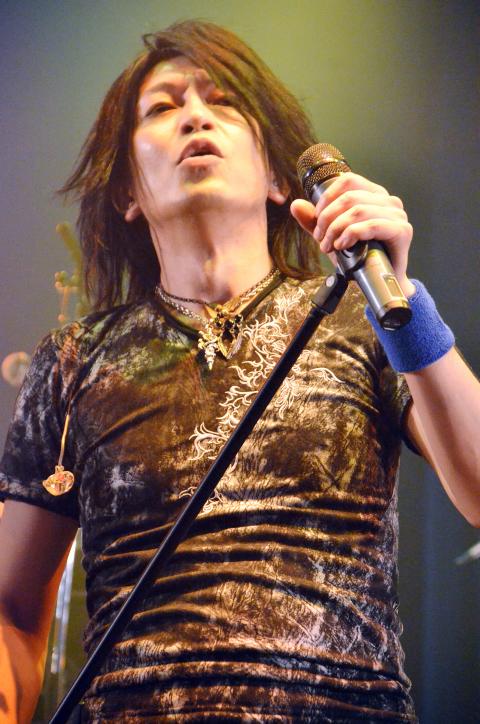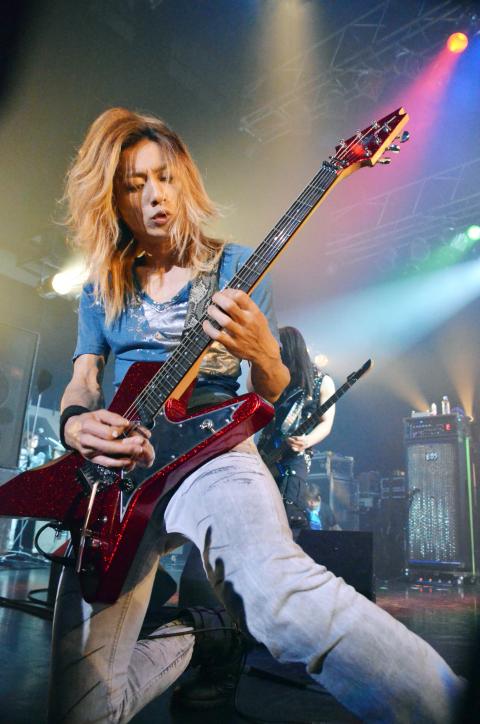What is music? To most, the parameters are well-defined. This is a pop song, that is rock. This is metal, and that is classical. But then there is the kind of music that rages and claws so vehemently against anything our collective conscious might call musical, it threatens the very definition of music. This is what noise artist Merzbow makes.
Born in Japan in the mid-1950s, the man also known as Masami Akita started out playing drums in high school bands. He and his band mates crafted an already well-worn style shaped by the likes of Cream and Jimi Hendrix. Before long, Akita’s tastes drifted toward improvisation and free jazz, before he lost all interest in what might be defined as music in a traditional sense.
It was then that his infatuation with noise began. “I quit playing and tried other things like tapping the floor of the studio or rattling the chairs,” Akita says of his early forays into the genre that would consume him for the next four decades to the present day.

Photo courtesy of Galneryus
From 1973 onward, Masami never glanced back at his early classic rock leanings. Leaving music and throwing himself into the virtually limitless void of noise was nothing but liberation, says Akita.
“Quitting something is so thrilling to me because it tells me what’s important. At the time, I was struck by Pierre Schaeffer’s Symphonie pour un homme seul and the poetry of Surrealism and Dadaism. All this led me to making music only by noises and sounds generated solely by non-instruments.”
Nowadays, Akita mainly takes his inspiration from the world of beasts, with themes of animal rights dominating his creative output in both the abstract and concrete sense. His latest album Takahe Collage, which was released in April, is devoted entirely to the birds of New Zealand.

Photo courtesy of Galneryus
Merzbow performs Saturday night at The Wall, B1, 200, Roosevelt Rd Sec 4, Taipei City (台北市羅斯福路四段200號B1). Doors open at 7:30pm and the show begins at 8pm. Supporting acts are Fujui Wang (王福瑞), Betty Apple (鄭宜蘋), Dino (廖銘和) and Wolfenstein (謝仲其). Tickets are NT$800 in advance, NT$1,200 at the door.
■ Moving on to things slightly more accessible. Japan’s Galneryus will be at Legacy in Taipei on Sunday night, bringing their brand of European-flavored power metal to a city that has long favored the genre over metal’s more extreme sub-categories. You can expect lots of galloping beats and soaring leads along with those testicles-in-a-vice falsetto vocals that have been hallmarks of power metal since the early eighties. The band, the members of which prefer to go by single names only, was founded in 2001, and has become just as well known for its original studio output as it has for its penchant for releasing cover albums.
Galneryus’ latest album, the verbosely titled The Ironhearted Flag Vol. 1: Regeneration Side, is actually a cover of themselves: They’ve rework their earlier material. For guitarist and band founder Syu, it is a way of commemorating the band’s history, and also a means of marking an important milestone in Galneryus’ career.
“We wanted to do it to celebrate our 10th anniversary,” Syu explains, “and we wanted to honor the sound and the members of our previous era. That’s the main reason we decided to do it.”
Syu’s classically trained fingerprints are all over the album’s tracks, spanning the band’s entire history. Though now known for his fleet work on the fretboard, Syu began his musical training on the violin at the age of six, and then moved on to the piano. He even took up the drums in fourth grade. The multi-instrumentalist counts global superstars X-Japan among his biggest influences, and their sound is readily apparent in Galneryus’ style, minus the visual kei elements in the live setting. As for future plans, the band is slated to release yet another album of re-recorded material in the fall.
Galneryus plays on Sunday at Legacy Taipei, 1, Bade Rd Sec 1, Taipei City (台北市八德路一段一號) Doors open at 7pm and the show starts at 8pm. Tickets are NT$1,800 in advance and NT$2,000 at the door. The NT$2,500 VIP packages are already sold out. Advance tickets are available at walkieticket.com.

From an anonymous office in a New Delhi mall, matrimonial detective Bhavna Paliwal runs the rule over prospective husbands and wives — a booming industry in India, where younger generations are increasingly choosing love matches over arranged marriage. The tradition of partners being carefully selected by the two families remains hugely popular, but in a country where social customs are changing rapidly, more and more couples are making their own matches. So for some families, the first step when young lovers want to get married is not to call a priest or party planner but a sleuth like Paliwal with high-tech spy

With raging waters moving as fast as 3 meters per second, it’s said that the Roaring Gate Channel (吼門水道) evokes the sound of a thousand troop-bound horses galloping. Situated between Penghu’s Xiyu (西嶼) and Baisha (白沙) islands, early inhabitants ranked the channel as the second most perilous waterway in the archipelago; the top was the seas around the shoals to the far north. The Roaring Gate also concealed sunken reefs, and was especially nasty when the northeasterly winds blew during the autumn and winter months. Ships heading to the archipelago’s main settlement of Magong (馬公) had to go around the west side

When Portugal returned its colony Macao to China in 1999, coffee shop owner Daniel Chao was a first grader living in a different world. Since then his sleepy hometown has transformed into a bustling gaming hub lined with glittering casinos. Its once quiet streets are now jammed with tourist buses. But the growing wealth of the city dubbed the “Las Vegas of the East” has not brought qualities of sustainable development such as economic diversity and high civic participation. “What was once a relaxed, free place in my childhood has become a place that is crowded and highly commercialized,” said Chao. Macao yesterday

For the authorities that brought the Mountains to Sea National Greenway (山海圳國家綠道) into existence, the route is as much about culture as it is about hiking. Han culture dominates the coastal and agricultural flatlands of Tainan and Chiayi counties, but as the Greenway climbs along its Tribal Trail (原鄉之路) section, hikers pass through communities inhabited by members of the Tsou Indigenous community. Leaving Chiayi County’s Dapu Village (大埔), walkers follow Provincial Highway 3 to Dapu Bridge where a sign bearing the Tsou greeting “a veo veo yu” marks the point at which the Greenway turns off to follow Qingshan Industrial Road (青山產業道路)